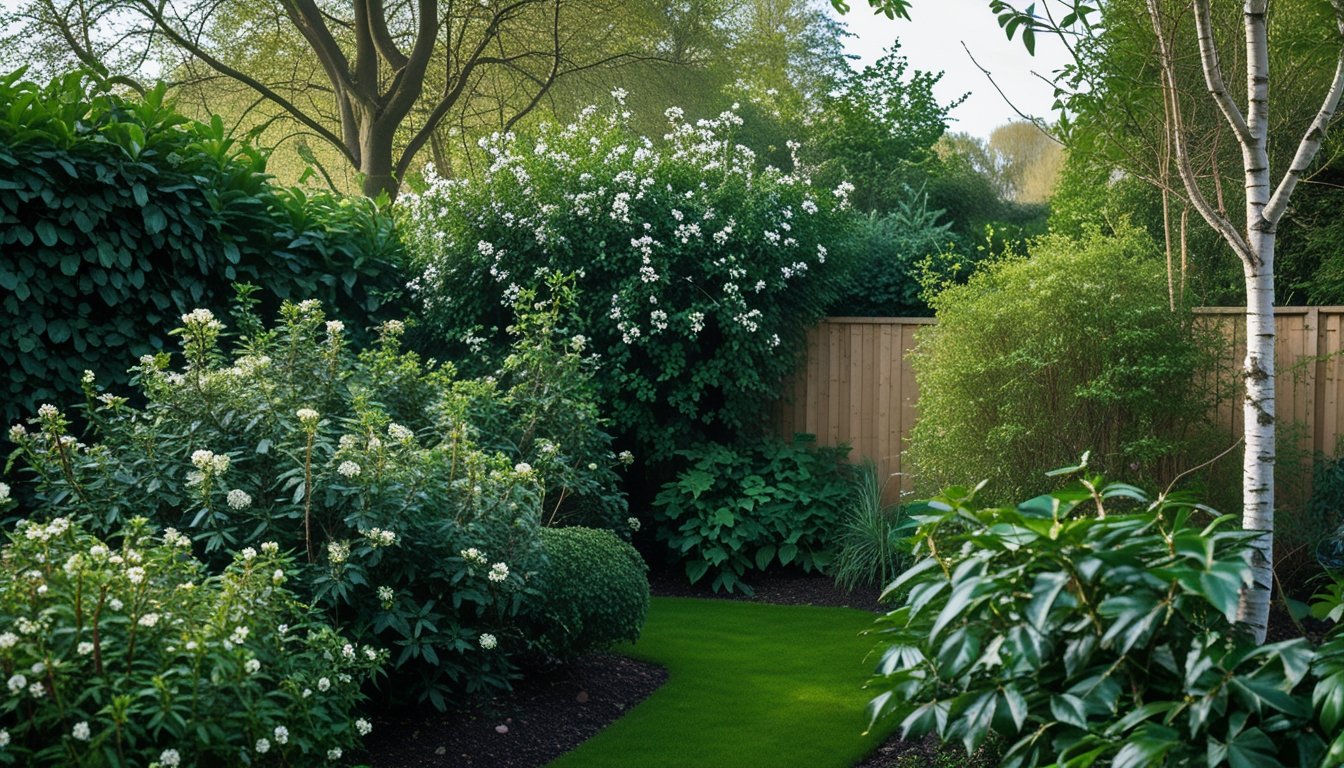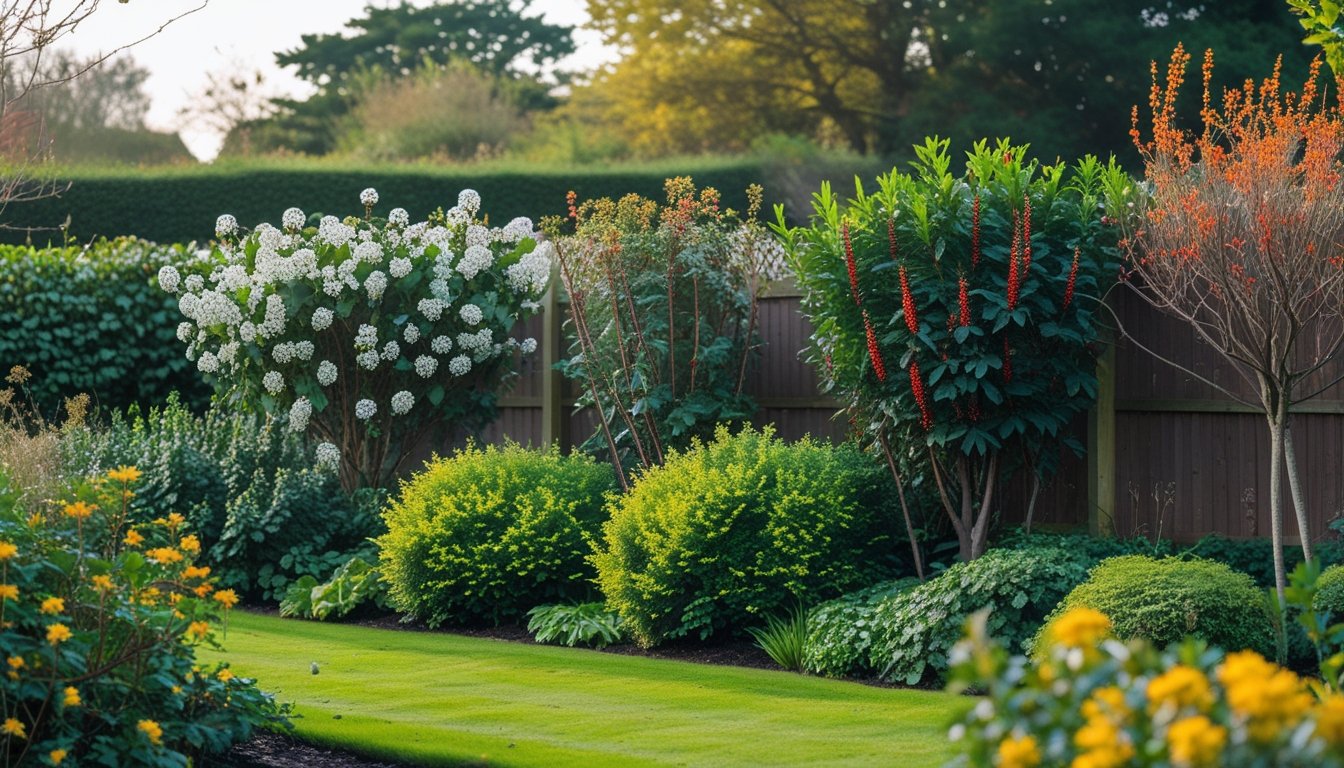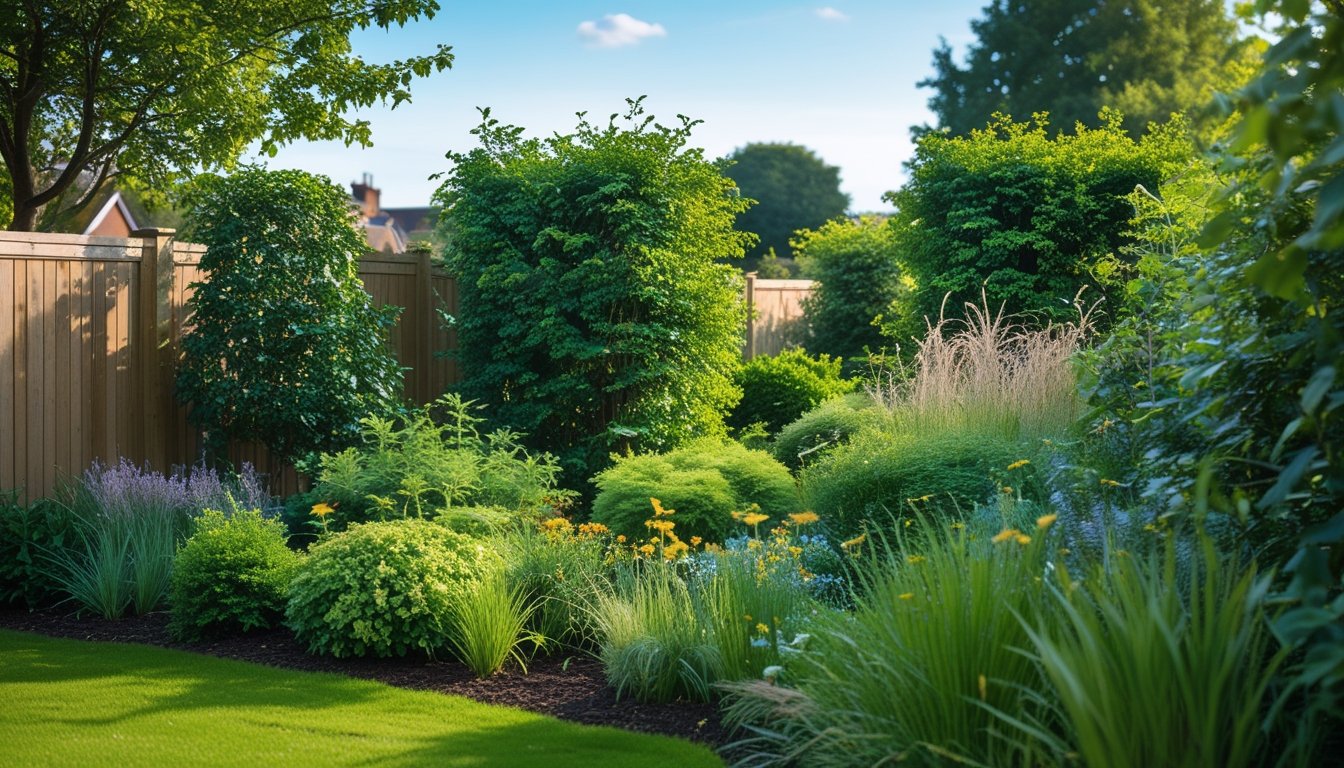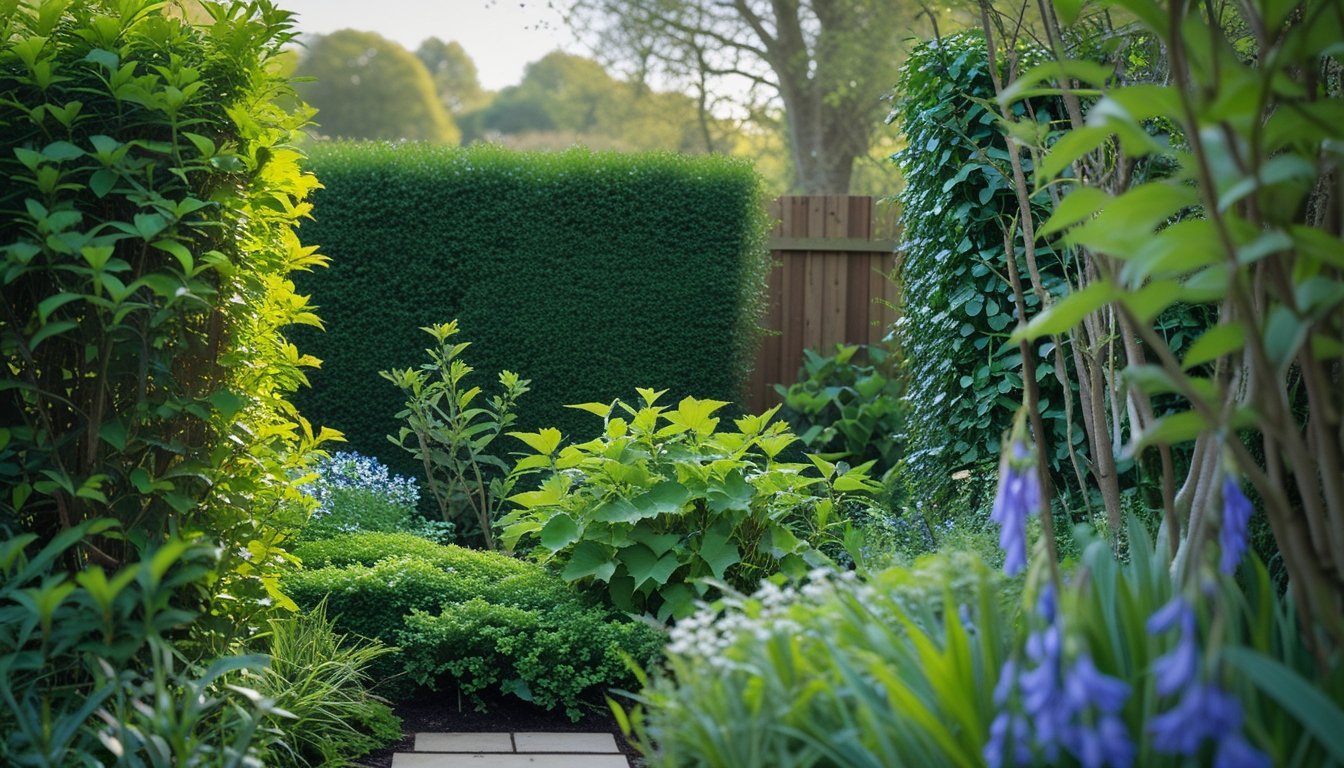Late updated: 12 Oct 2025 14:10
Written by: Emily Thornton
Native UK Plants For Increasing Garden Privacy: Top Choices For Your Landscape
Enhancing garden privacy while supporting local biodiversity is simpler than it seems with the use of native UK plants. Choosing plants such as hawthorn or holly not only creates effective natural screens but also fosters an inviting habitat for urban wildlife. This dual benefit of increased privacy and environmental enhancement offers a compelling reason to consider native options for your garden.

By integrating native plant species, we gain more than just a lush, green barrier. These plants, naturally adapted to the UK climate, promise robust growth and easier maintenance compared to their non-native counterparts. This not only saves time but also contributes to the overall health of local ecosystems by providing food sources and shelter to birds and pollinators.
For those of us aiming to harmonise privacy with ecological responsibility, understanding plant selection and maintenance is key. The charm and practicality of native shrubs and trees promise a stylish and functional addition to any garden, supporting both personal comfort and broader environmental goals.
Key Takeaways
- Native UK plants enhance privacy and support wildlife.
- They thrive in local climates with less maintenance.
- A careful selection enriches both gardens and ecosystems.
Key Native UK Plants for Increasing Garden Privacy

To create a more private garden space with native UK plants, we can utilise a variety of species known for their dense foliage and adaptability. These plants not only provide effective garden screening but also support local wildlife and contribute to biodiversity. Let's explore three key plants that can enhance privacy in your garden.
Common Hawthorn (Crataegus monogyna)
The Common Hawthorn is a favoured choice for garden privacy due to its dense, thorny growth. This native shrub establishes quickly and forms impenetrable barriers, making it a practical choice for enhancing security and privacy.
We also appreciate its seasonal interest; it produces aromatic white flowers in the spring followed by vibrant red berries in the autumn. These attributes not only benefit garden aesthetics but also attract birds and pollinators, enriching the local ecosystem.
Another benefit is its adaptability to various soil conditions, whether you're dealing with clay or sandy soils. This allows us to plant it across different garden conditions. With proper pruning, the Hawthorn can be shaped into formal hedges or left to grow in its natural form.
Blackthorn for Dense Screens
Blackthorn is another excellent option for privacy hedging. Known for its densely packed branches and spiny stems, it provides a robust, living barrier. This native plant is particularly effective at deterring unwanted entry into garden spaces while contributing to rural and urban biodiversity alike.
The plant produces striking white blossoms in early spring, creating an attractive screen. Later in the year, it bears sloes, which are a food source for many birds and wildlife.
Its thick growth pattern makes it ideal for blocking views and reducing noise pollution. Unlike some other hedging plants, Blackthorn is well-suited to tough conditions and can thrive in exposed areas, offering us a resilient solution for garden privacy.
Laurel and Other Native Shrubs
While not traditionally native, Cherry Laurel (Prunus laurocerasus) is widely used and effectively naturalised in UK gardens. This shrub is valued for its large, glossy leaves, which form dense screens year-round.
Laurel grows rapidly, providing quick results in areas requiring immediate privacy. Its evergreen nature ensures coverage throughout the winter months.
We may also consider other native shrubs such as Hazel or Rowan, which add variety and seasonal interest with their flowers and fruits. Each of these plants can be combined to create layered, dynamic hedging, contributing to a garden's ecological health while offering effective privacy solutions.
Wildlife Benefits and Practical Planting Tips

Native UK plants not only enhance garden privacy but also support local ecosystems. By strategically incorporating these plants into our gardens, we can create inviting habitats for wildlife while also ensuring aesthetic appeal.
Supporting Bees and Butterflies
Creating a haven for bees and butterflies starts with selecting the right plants. Species such as Lavandula (lavender) and Sedum (stonecrop) are superb choices. They attract pollinators with their vibrant colours and scents, providing both nectar and pollen.
Our gardens can become lively ecosystems as these insects play crucial roles in pollination. By sustaining a diverse range of flowering plants, we boost local biodiversity, supporting the life cycles of these important creatures.
Native plants are naturally adapted to UK's climate, making them ideal for creating a sustainable and wildlife-friendly garden environment.
Encouraging Pollinators in Privacy Borders
Incorporating pollinator-friendly plants within our privacy borders balances functionality with ecological benefits. Crataegus monogyna (hawthorn) and Ilex aquifolium (holly) provide dense foliage and blossoms that attract a variety of pollinators.
A mixture of shrubs and small trees creates natural screens while supporting wildlife. Layering plants within borders not only maximises coverage but also offers varied habitats.
The Royal Horticultural Society suggests incorporating plants that flower at different times to ensure a continuous food source throughout the seasons, attracting diverse pollinator species to our gardens.
Best Practices for Planting and Maintenance
Successful planting begins with knowing the soil type and environmental conditions of our gardens. Native plants often require minimal maintenance, adapting easily to local conditions.
When planting, consider spacing to allow growth and reduce disease susceptibility. Regular pruning helps maintain plant health and optimises privacy.
To maintain plant vitality, periodic feeding with organic matter and mulching can enhance soil quality, ensuring that plants remain robust and attractive. Regularly inspecting plants for pests and disease will keep our privacy borders thriving and effective in supporting wildlife.
Frequently Asked Questions

Understanding how native UK plants can enhance garden privacy involves selecting the right shrubs and trees, knowing their growth patterns, and ensuring proper maintenance. Let's explore some common queries that arise when planning a natural privacy screen using native plants.
What are the best native shrubs for creating a private garden space?
Shrubs like Hawthorn and Blackthorn are excellent choices. These native species provide dense foliage and are well-suited to various soil conditions, helping to create effective natural barriers.
Which UK-native trees provide the most coverage throughout the year?
For year-round coverage, trees like the Hornbeam and Holly offer great options. Hornbeam offers dense foliage for privacy, while Holly—with its evergreen nature—ensures coverage even in winter.
How can I use native hedges for enhancing garden privacy effectively?
Planting native hedges such as Yew or Beech can enhance privacy. These hedges, when trimmed regularly, form dense, impenetrable screens that deter unwanted views.
What fast-growing UK plants are suitable for a natural privacy screen?
To quickly achieve privacy, consider using plants like Elder or Dogwood. These grow rapidly and fill gaps swiftly, making them ideal for establishing a secluded space.
Can native perennial plants be used to improve garden seclusion?
Yes, native perennials like Foxglove and Ferns add layers of privacy. While they don’t provide as much height, they complement shrubs and trees by filling lower spaces.
What maintenance considerations should I be aware of when planting for privacy?
Regular pruning and soil care are essential. Native plants typically require less intervention, but monitoring for pests and diseases ensures your garden remains healthy and lush.
